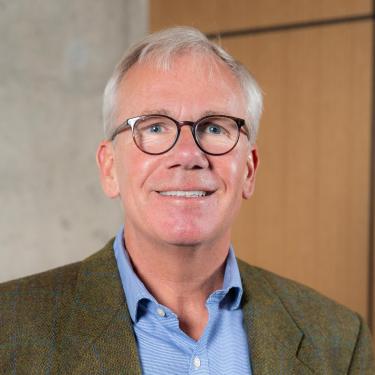Wireless sensor platform to be presented at 2024 Embark Showcase
- What: 2024 Embark Showcase, the inaugural showcase of the Embark Deep Tech Startup Creator
- When: Wednesday, Jan. 24, 2-6 p.m. Doors open at 1:30 p.m. A networking reception with refreshments will be held from 4-6 p.m., and the bar will be open.
- Where: The Riverside, 1724 Broadway, Boulder
Registration required. Seating is limited.
WHISPER Energy, a startup aiming to bring to market a wireless sensor platform, will be presented at the University of Colorado Boulder's 2024 Embark Showcase on Jan. 24. Developed by a multi-institutional team under the leadership of Professor Gregor Henze, the innovative technology seeks to optimize energy consumption in both residential and commercial settings by intelligently adjusting usage based on detecting human presence.
In 2023, Henze was selected as one of 12 entrepreneurs for the inaugural Embark Entrepreneurs in Residence program for his Wireless Home Identification and Sensing Platform for Energy Reduction (WHISPER) technology.
Embark, CU Boulder’s startup catalyst for deep tech ventures, connects entrepreneurs with groundbreaking innovations. The program offers selected entrepreneurs intellectual property (IP) rights, salary support, grant funds and introductions to investors.
Galen Williams, formerly an Entrepreneur in Residence at Venture Partners at CU Boulder and now affiliated with the University of California Riverside, will lead WHISPER Energy.
We spoke with Henze about the project.

When did you start working on WHISPER?
The WHISPER technology was the outgrowth of my Advanced Research Projects Agency-Energy (ARPA-E ) project from 2017 to 2021, which was part of the SENSOR program.
What does Whisper's sensor platform do?
Many regions of the world rely on heating, ventilation and air-conditioning (HVAC) systems to provide productive, comfortable and healthy indoor environments through automatic building controls. The increasing use of HVAC systems globally, driven by climate change, population growth and industrialization, has led to a surge in energy consumption. Unfortunately, these systems often operate continuously regardless of human presence, resulting in unnecessary energy consumption. The heating, ventilation and cooling of unoccupied building spaces significantly contribute to the environmental impacts associated with carbon-based electric power generation, requiring urgent attention. We developed the WHISPER system to address the energy and power demand triggered by human presence in homes.
WHISPER incorporates a maintenance-free and privacy-preserving human occupancy detection system. It utilizes a local wireless network of battery-free environmental, acoustic energy and image sensors employing RFID backscattering technology. These sensors are strategically placed in homes to monitor and record empirical data for various modalities, transmitting the information to a base station. At the base station, machine-learning algorithms, including a hierarchical sensor fusion algorithm, infer human presence based on the received data. Results from the prototype system demonstrate a human presence detection accuracy exceeding 95 percent, with ongoing commercialization efforts suggesting approximately 99 percent accuracy.
Using machine learning, WHISPER enables various applications based on its binary occupancy prediction. This allows situation-specific controls targeted at both personalized smart home needs and contributing to opportunities for modernizing the electric grid.
Why did you develop WHISPER?
The original intent was to develop a technology that reduces unnecessary energy consumption in homes as a result of conditioning homes while unoccupied. Accurate occupancy detection was crucial to prevent users from disabling the system, in other words we needed to minimize false negatives (incorrectly assuming the house is empty, potentially annoying occupants) as well as false positives (wrongly assuming the house is occupied, leading to unnecessary energy consumption). At the end of the project we discovered additional applications for the versatile sensing platform that relate to indoor air quality and assistive technology for the elderly who wish to remain in their home and smart grid applications.
Whisper Energy is actively working to develop solutions based on this sensing platform to address the challenges of creating healthy and energy-efficient homes and workplaces.


